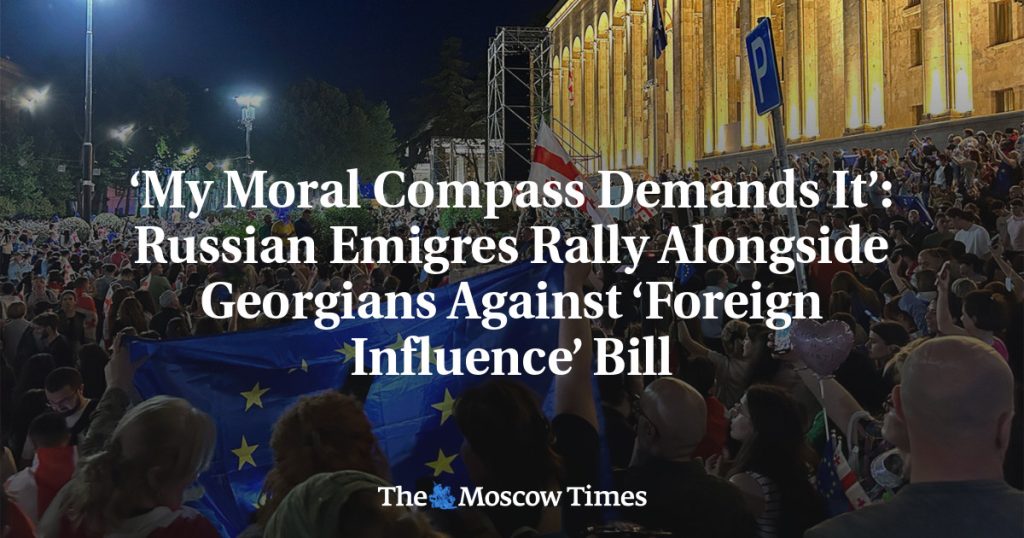The protests in Georgia against the controversial “foreign influence” bill have attracted tens of thousands of people, including members of the Russian diaspora community living in Tbilisi. Many Russians in Georgia have joined the protests out of a desire to oppose what they see as potential authoritarianism similar to Russia emerging in Georgia. Despite the risks of potential legal troubles and concerns about their loved ones back home, some Russian emigres feel compelled to participate in the demonstrations to show solidarity.
While some members of the Russian diaspora in Georgia choose to stay away from the protests, others have decided to attend after being invited by Georgian friends. The emotional atmosphere of the protests and the desire to see Georgia have a bright future in the European Union have motivated some Russian emigres to join the demonstrations. However, they are aware of the potential consequences of their participation, as Georgia maintains a liberal entry regime for foreigners, and there are concerns about the safety of their loved ones in Russia.
Despite warnings from Moscow about the protests in Georgia, Russian emigres have not been deterred from attending. Russian authorities have expressed their interest in ensuring stability in Georgia, while some have attempted to discredit the protesters by suggesting that they are acting in the interests of another state. However, the motivations of Russian emigres participating in the protests are driven by their own beliefs and desire to support the Georgian cause against what they see as repressive legislation.
At a recent demonstration in front of the Georgian parliament building, Russian women unfurled banners criticizing the proposed law and drawing parallels with similar legislation in Russia. The participation of Russians in the protests has been met with some hostility due to anti-Russian sentiment, but some Georgians have welcomed their involvement. Georgian protesters have expressed support for Russian emigres who are fleeing from the Russian regime and are participating in the demonstrations to show solidarity with the Georgian cause.
The involvement of Russian emigres in the protests highlights the complex dynamics at play in Georgia, where individuals from different backgrounds come together to oppose legislation that they view as a threat to democracy. Despite concerns about legal risks and anti-Russian sentiment, some members of the Russian diaspora in Georgia feel compelled to support the protests and stand in solidarity with the Georgian people. The ongoing demonstrations in Georgia serve as a platform for people of various nationalities to come together and speak out against what they perceive as threats to freedom and democracy.


